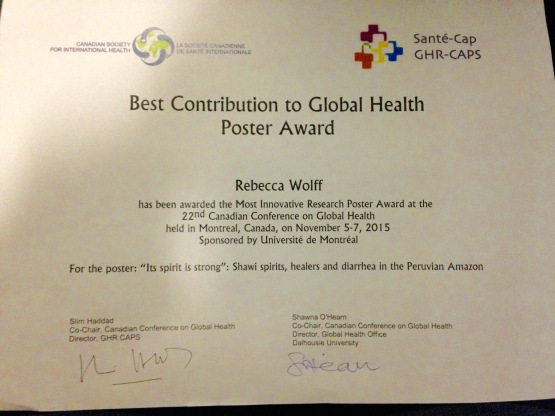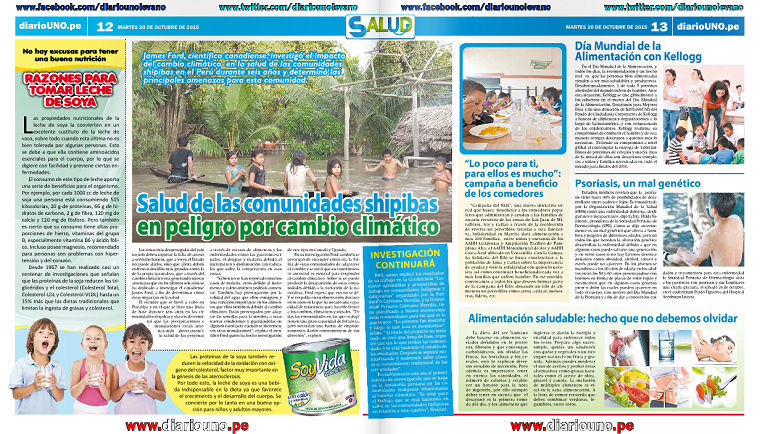Written by Carol Zavaleta
National Indigenous leaders and IHACC Peru team members visited Nuevo Progreso for results dissemination and an informative workshop about food security adaptation to climate change.
Photo credit: Guillermo Lancha
A results dissemination meeting was held in the Shawi community of Nuevo Progreso, Peru, in August 2018. The meeting was facilitated by IHACC team members Carol Zavaleta and Guillermo Lancha, and attended by community members and leaders from the Peruvian National Indigenous Development Association (AIDESEP)[i].
Rocilda Nunta, a female youth Indigenous leader, and Indigenous Apu Richard Rubio (Amazonian Indigenous leaders are referred to by the Quechua word Apu), vice president of AIDESEP, expressed their appreciation to the community for receiving them, as it was their first visit to a Shawi community. Dr. Carol Zavaleta presented her PhD thesis findings about climate change, food, and nutritional security, while Guillermo Lancha, a local IHACC research assistant, facilitated interpretation.
During the meetings, Rocilda also shared information about her work experience on food security adaptation to climate change with Quechua women in the neighboring region of San Martin. She provided practical examples of how women can organize local crop production for both food and cash income, and emphasized the importance of promoting food and nutrition security via the utilization of local Indigenous crops and animals.
Richard Rubio, Indigenous Apu, tells stories about how his own community is adapting to new environmental and social changes.
photo credit: Guillermo Lancha
Indigenous Apu Richard Rubio spoke of the importance of integrating Indigenous knowledge and western scientific knowledge to foster water and food security adaptation, and explained how his own community was adapting to environmental and social changes (for example, using solar light to purify water as a response to environmental contamination).
Before closing the meeting, Rocilda and the Apu Richard expressed their interest in continued collaboration with the IHACC team, and their desire to participate in future events and promote food-related adaption from a local Indigenous perspective.
—
[i] Note: There are more than fifty Amazon Indigenous groups in Peru and most of them are politically organized in 109 local Indigenous Federations. Every two to three years they participated in internal Indigenous elections to select National Representatives. National Indigenous representatives are part of the Indigenous National Counselling at AIDESEP.








